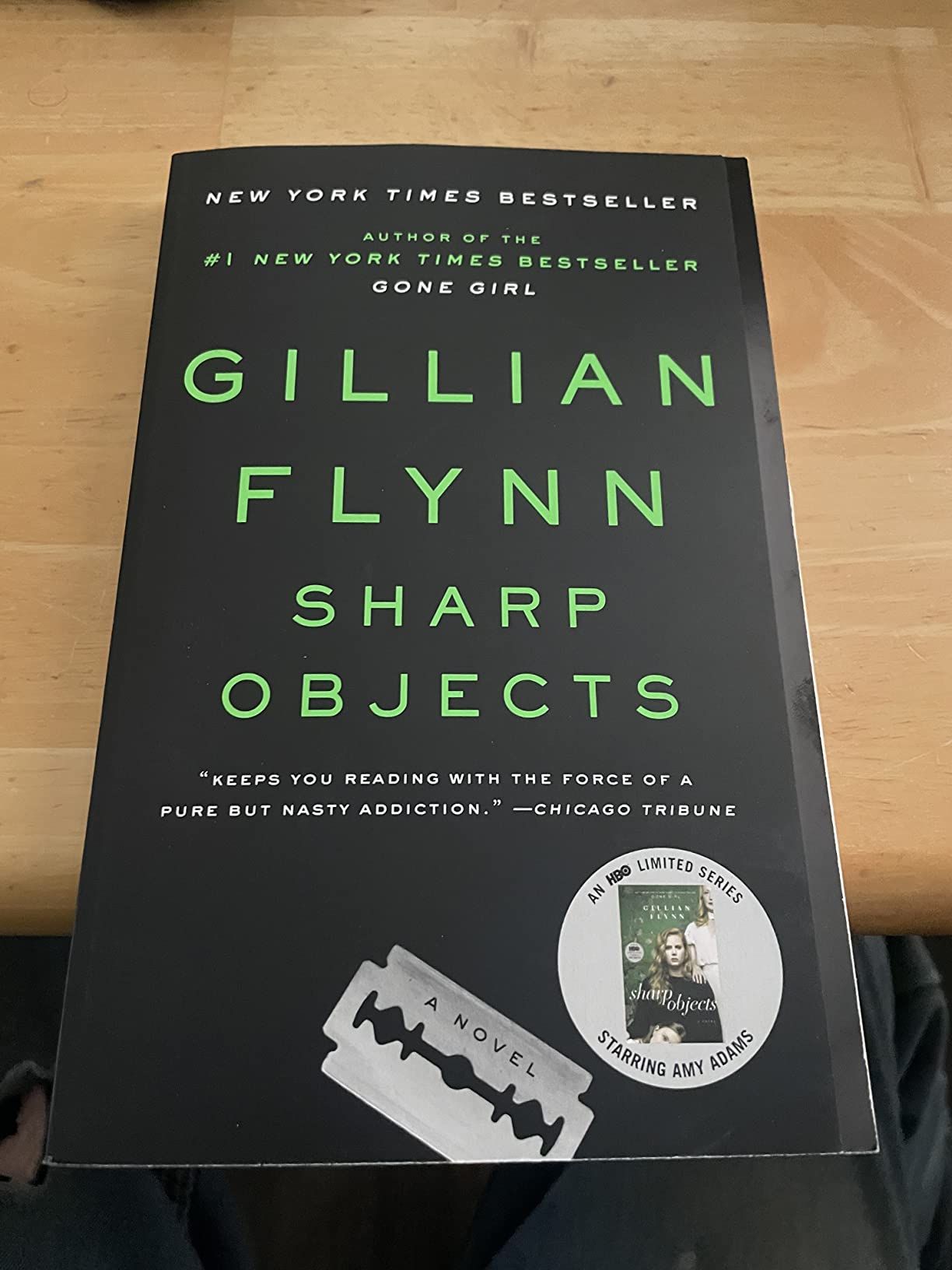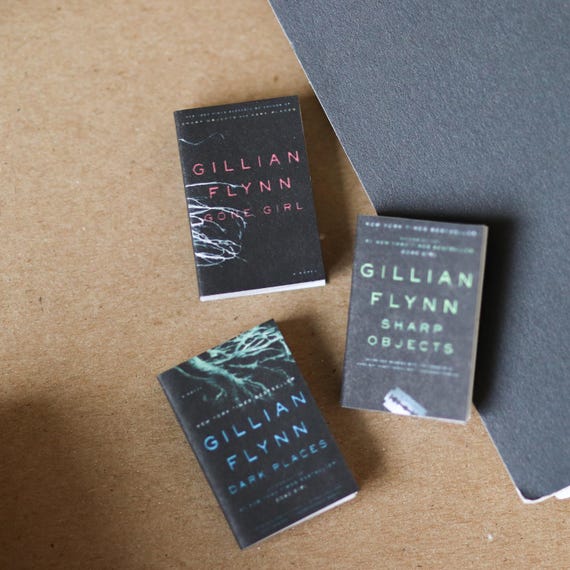Gillian Flynn Books: A Deep Dive into Psychological Thrillers

Gillian Flynn, a name synonymous with gripping psychological thrillers, has captivated readers worldwide with her intricate plots, darkly compelling characters, and shocking twists. This comprehensive exploration delves into the world of Gillian Flynn’s books, examining their genres, critical acclaim, cultural impact, and the author’s unique writing style. We’ll explore her three major novels – Gone Girl, Dark Places, and Sharp Objects – and analyze their individual strengths while highlighting the common threads that weave through her body of work. We’ll also examine the wider context of her work, considering its influence on contemporary literature and its various adaptations.
The Novels: A Genre-Defining Trilogy
Gillian Flynn’s novels firmly reside within the genres of psychological thriller and suspense. However, her work transcends simple genre categorization. She crafts narratives that explore complex themes of marriage, family dynamics, memory, and the darker aspects of human nature with a level of psychological depth rarely seen in the genre.
Gone Girl: The Masterpiece of Deceit

Published in 2012, Gone Girl instantly became a global phenomenon. The novel centers on the seemingly perfect marriage of Nick and Amy Dunne, unraveling as Amy mysteriously disappears on their fifth wedding anniversary. The narrative cleverly alternates between Nick and Amy’s perspectives, revealing their deeply flawed and increasingly unreliable characterizations. Flynn masterfully manipulates the reader, blurring the lines between truth and deception, leaving the reader questioning the motives and culpability of both protagonists until the shocking climax. Gone Girl’s success lies not just in its twist ending but in its insightful exploration of a toxic marriage and the societal pressures that can fracture even the most seemingly stable relationships. The novel’s cultural impact is undeniable, prompting countless discussions about marriage, gender roles, and the performative nature of identity in the digital age. The success of the subsequent film adaptation further solidified its status as a modern classic.

Dark Places: Unraveling a Family’s Past
Dark Places, published in 2009, precedes Gone Girl chronologically but showcases many of the same thematic concerns and stylistic elements. The story follows Libby Day, the sole survivor of a brutal family massacre that occurred when she was seven years old. Years later, haunted by the event and facing financial hardship, Libby agrees to revisit the past when a group called the Kill Club offers her money to investigate whether her brother, Ben, who was convicted of the crime, is actually innocent.
Flynn’s masterful storytelling in Dark Places lies in its intricate structure. The novel alternates between Libby’s present-day investigation and flashbacks to the day of the murders, presented from multiple perspectives, including Libby, her mother, and her brother. This technique gradually unravels layers of deception and hidden truths, blurring the line between victim and perpetrator. The novel is lauded for its exploration of trauma, memory, and the enduring impact of childhood experiences, showcasing Flynn’s talent for creating complex and unforgettable characters inhabiting a dark and unsettling atmosphere.

Sharp Objects: A Debut That Set the Stage
Sharp Objects, Flynn’s debut novel, published in 2006, established her signature style. It introduces Camille Preaker, a young journalist struggling with self-harm and a troubled past who returns to her hometown to investigate the murder of two young girls. The close, claustrophobic setting of the small town mirrors the protagonist’s internal turmoil, as Camille confronts her own dysfunctional family and uncovers unsettling secrets within the community. Sharp Objects is a powerful and disturbing exploration of familial trauma, psychological instability, and the corrosive nature of secrets, demonstrating Flynn’s skill in creating a suspenseful narrative with a compelling female protagonist. Its subsequent HBO adaptation starring Amy Adams has earned critical acclaim and introduced Flynn’s distinctive style to a wider audience.
Gillian Flynn: The Author and Her Craft
Gillian Flynn’s unique writing style is a crucial element of her success. She is known for her sharp wit, darkly humorous prose, and her ability to craft utterly unreliable narrators. Her characters are often deeply flawed, morally ambiguous, and capable of shocking acts. This approach allows Flynn to delve into the complexities of human nature without judgment, exploring the depths of deceit, manipulation, and self-destruction. She avoids sentimentality, presenting her characters with unflinching honesty.
Flynn’s Writing Style: A Blend of Wit and Darkness
Flynn’s prose is both sharp and evocative. She employs a mix of sharp wit and dark humor, creating a darkly comedic tone that offsets the often disturbing content of her stories. This distinctive balance keeps the reader engaged, even when facing morally ambiguous characters and unsettling situations. The unreliable narration is also a key aspect of her style. She deliberately manipulates reader expectations, withholding crucial information and twisting perspectives to build suspense and create a constantly shifting sense of truth. The reader’s understanding of the plot and characters evolves through the subtle and gradual revelation of hidden details, leading to a satisfyingly shocking climax.
Inspirations and Influences
Flynn’s work draws inspiration from various sources, including classic thrillers, noir literature, and contemporary psychological fiction. Her understanding of human behavior, demonstrated in her novels, suggests a deep engagement with psychology and sociology. This deep understanding allows her to create believable characters who make questionable choices. Her sharp social commentary, often embedded within her narratives, adds another layer of depth and sophistication.
The Cultural Impact: Adaptations and Awards
The immense popularity of Gillian Flynn’s novels has translated into several successful film and television adaptations. Gone Girl and Sharp Objects, in particular, have received critical acclaim, showcasing the potential of Flynn’s stories to translate effectively into other media. These adaptations have broadened Flynn’s reach, introducing her work to new audiences and further cementing her status as a contemporary literary figure.
Awards and Recognition
Flynn’s work has received numerous awards and accolades, including the Edgar Award for her novella The Grownup. Her novels have consistently appeared on bestseller lists, earning numerous critical praises. This level of success reflects the high quality of her work, demonstrating her unique talent for blending psychological depth with a commercially successful thriller format.
Literary Influence
Gillian Flynn’s influence on contemporary literature is notable. Her work has inspired a wave of similar psychological thrillers characterized by unreliable narrators, dark humor, and complex explorations of moral ambiguity. Her success has helped to elevate the thriller genre, highlighting its potential for psychological and literary exploration.
Libraries and Archives: Preserving the Legacy
Gillian Flynn’s books are widely available in public libraries and digital libraries worldwide. Their inclusion in library collections ensures their continued accessibility to readers, reinforcing their status as significant works of contemporary literature. Moreover, the preservation of her manuscripts and related materials in archives guarantees that future scholars and researchers can analyze her work and its broader literary contributions.
Reading and Learning: Engaging with Gillian Flynn’s Themes
Reading Gillian Flynn’s work offers more than pure entertainment; it provides opportunities for self-reflection and critical thinking. Her novels explore the dark side of human behavior, forcing readers to confront uncomfortable truths about relationships, family dynamics, and the complexities of the human psyche. This encourages a deeper understanding of psychological concepts and provides a platform for analyzing societal issues such as gender roles, wealth disparity, and the power of media manipulation.
Educational Value and Life Lessons
While exploring themes of deception, violence, and social issues, Flynn’s work offers profound insights into human psychology and the complexities of modern life. Her novels prompt readers to question their own assumptions and perceptions, encouraging critical analysis of the motivations and choices made by her characters. This can enhance critical thinking skills and foster deeper understanding of complex societal issues. The educational value extends to the quality of her writing itself, serving as an example of skillful plotting, character development, and narrative structure.
Reading Habits and Engagement
The immersive nature of Flynn’s storytelling, often enhanced by her use of unreliable narrators and cleverly constructed plots, promotes focused and engaging reading habits. Readers frequently report being unable to put her books down due to their fast pace, captivating storylines, and unexpected twists. This fosters a passion for reading and a deep engagement with literary narrative.
In conclusion, Gillian Flynn’s contribution to contemporary literature is multifaceted and enduring. Her novels are not just thrilling reads; they are sophisticated explorations of the human condition, delivered through a masterfully crafted style. Her impact extends far beyond the page, influencing both the thriller genre and popular culture, ensuring her place as a significant voice in modern literature.